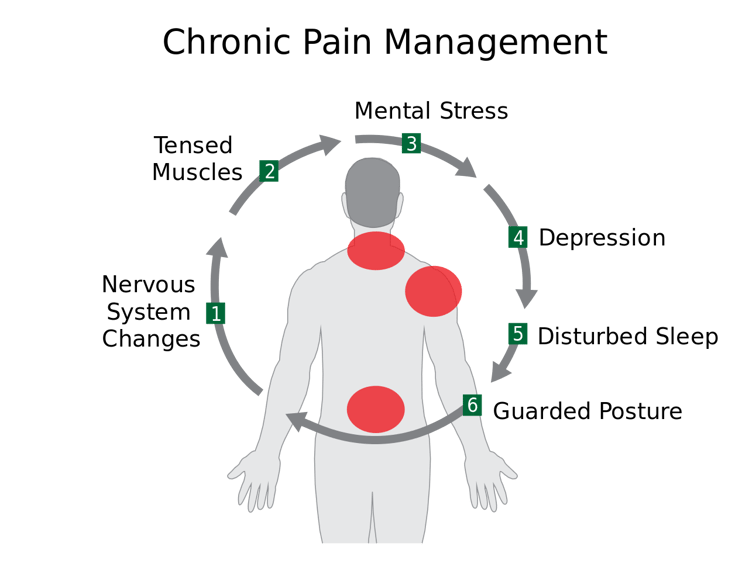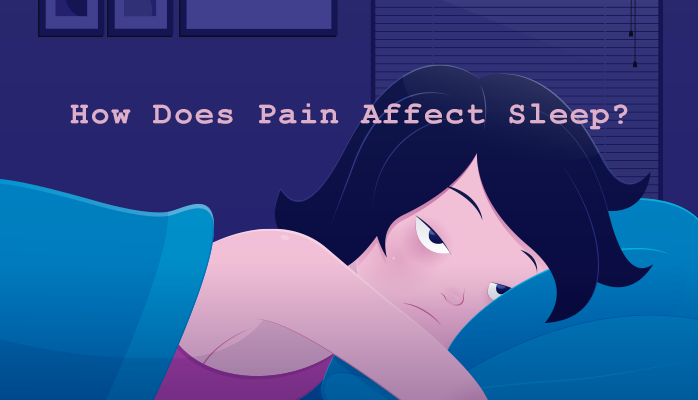How Much Are We In Pain?
Pain-related sleep loss is a common problem in society. The 2015 Sleep in AmericaTM Poll found that 21% of Americans experience chronic pain. It also found that 36% of people have experienced acute pain in the last week.
The question is why are people in so much pain? Some contributing factors include:
- Sitting all day at a desk is not good for our health
- Increased screen time leads to less physical activity
- Obesity epidemic
- Stress
- Sports and high activity that lead to injuries
- Genetics
With so many people experiencing pain, there is a high likelihood that they are also experiencing sleeplessness as pain and sleep are closely related. Continue reading to learn more about the impact of pain on sleep.
Why Pain Matters
Pain matters for several obvious reasons:
- Your happiness levels
- Staying active
- Managing stress
- Motivation
When you are in chronic or acute pain, it’s much harder to be happy, stay motivated, manage stress, and stay active. There is also a vicious cycle between pain and sleep where they both worsen one another or can improve one another. 
Pain makes you lose sleep, and loss of sleep can deeply impact your well-being in a negative way, particularly happiness, staying active, staying motivated, and managing stress . In one study, 37% of people with chronic pain reported elevated stress levels compared to 7% of pain-free people who reported the same.
How Does Pain Impact Sleep?
Based on the above survey, there are two startling results for people who live with pain:
- People with chronic pain had an average nightly sleep debt of 42 minutes (i.e. getting 42 minutes less sleep than they should)
- People with acute pain in the last week had an average sleep debt of 14 minutes
There is a direct link between pain and sleep loss. Let’s compare this to people who aren’t in pain, based on the survey:
- 65% of people with no pain reported good or very good sleep quality
- 45% of people with acute pain in the last week reported good or very good sleep quality
- 37% of people with chronic pain in the last week reported good or very good sleep quality
Not only does pain cause you to sleep less, but it impacts the quality of sleep as well. This seems to be particularly true in the case of chronic pain. Twenty three percent of people with chronic pain reported being diagnosed with a sleep disorder by a doctor, compared to just 6% of pain-free people.
What to do if You Have Chronic Pain
Though you might not be able to take away the pain, there are steps you can take to help improve your chances of getting a restful night’s sleep.
- Cut alcohol in the hours leading up to bed
- Limit caffeine consumption and avoid caffeine after noon
- Be extremely careful using painkillers or sleeping pills, as they significantly aggravate certain sleeping disorders
- Practice relaxation techniques before bed, such as yoga, meditation, or breathing exercises
- Find high-energy exercises that you CAN do with little pain, such as swimming, cycling, running, and Pilates
- Try and eat a healthy diet
Doing all of these can make a huge difference in your sleep time and quality, especially if you have chronic pain.
If you live in Alaska, have pain, and can’t seem to sleep no matter what you do, please reach out to us by taking this free sleep survey.


